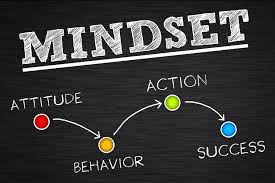Networking is a term you will hear a lot throughout your career. But what is networking? Networking is interacting with others to exchange information and develop contacts, especially to further one’s career. Since networking is fundamental, what do you need to know and do to become the best? Listed below are tips on how to master the art of networking.
- Create Your Pitch – Your elevator pitch is a 30 second or less introduction that summarizes who you are and what you want to do, while opening the door for additional conversation. When at an event or meeting someone, your first interaction is generally your name and what you do. Try to have a few sentences memorized that tell who you are within 30 seconds or less. Why is 30 seconds or less important? Timing is important because if your elevator pitch is too long you risk losing the listeners’ attention.
- Respect others – Remember what our parents taught us at a young age, “Treat everyone the way you want to be treated”? Use that to your advantage! You never know whom you will meet at an event, in the office, anywhere! Do not be afraid to introduce yourself and meet new people. Do not try to point out those who you think are in a position of power; meet as many people as you can.
- Listen – Networking can easily make you fall into only speaking of yourself and not listening to others. Listen to your audience, focus on what they say and do not worry about whom to talk to next. Giving someone your undivided attention shows the individual you care what he or she is talking about. Remember, how do you want to be treated?
- Memory does fade – We are all human, our memory fades and we can forget facts. Consider this; after speaking to someone, take a few moments to write down notes between interactions. Possibly take notes on your phone, notebook or business card. This will help when you follow up with someone you spoke with because it shows that you listened to them. Find a process that helps you remember who you spoke with and what they said.
- Have business cards/other contact information – This is obvious, but important! After speaking with someone, how can they contact you? Always bring information so they can contact you, otherwise, what was the point of connecting with them? Have your business cards, resumes, or something with your contact information handy to share with new contacts.
- Prioritize – You aren’t done once you’ve collected the business cards. Once you’ve made the connection, prioritize your contacts and build a schedule to check in regularly. Checking in regularly takes your relationship beyond the exchange of contact information and helps to build an authentic connection. It is these connections that can pay dividends both personally and professionally.
This Lifelete Fundamental was powered by Network After Work and Forbes.



